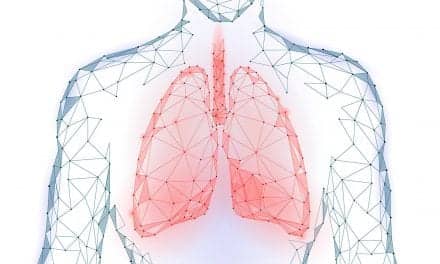A clinical trial has shown that a subset of lung cancer patients can derive clinical benefits from drugs that are commonly used to treat melanoma.
The EURAF study gathered information on 35 lung cancer patients who had been identified as carrying BRAF mutations, who were treated with B-Raf inhibitors between 2012 and 2014.
Most of those patients received vemurafenib, some dabrafenib, and one sorafenib. Overall response rate was 53% as measured by the widely used Response Evaluation Criteria In Solid Tumors (RECIST) guidelines. Overall, progression-free survival time in this group was 5 months.
Most patients were pretreated, and not eligible for enrolment in a clinical trial, which means these results are encouraging, the researchers say, although the study’s small size and retrospective nature mean the analysis of the magnitude of benefit should be treated cautiously.
“The bottom line is that clinicians should be sure to test patients for so-called ‘rare’ driver mutations in lung cancer, because individual patients may derive substantial benefit from targeted therapy,” says Gautschi.









